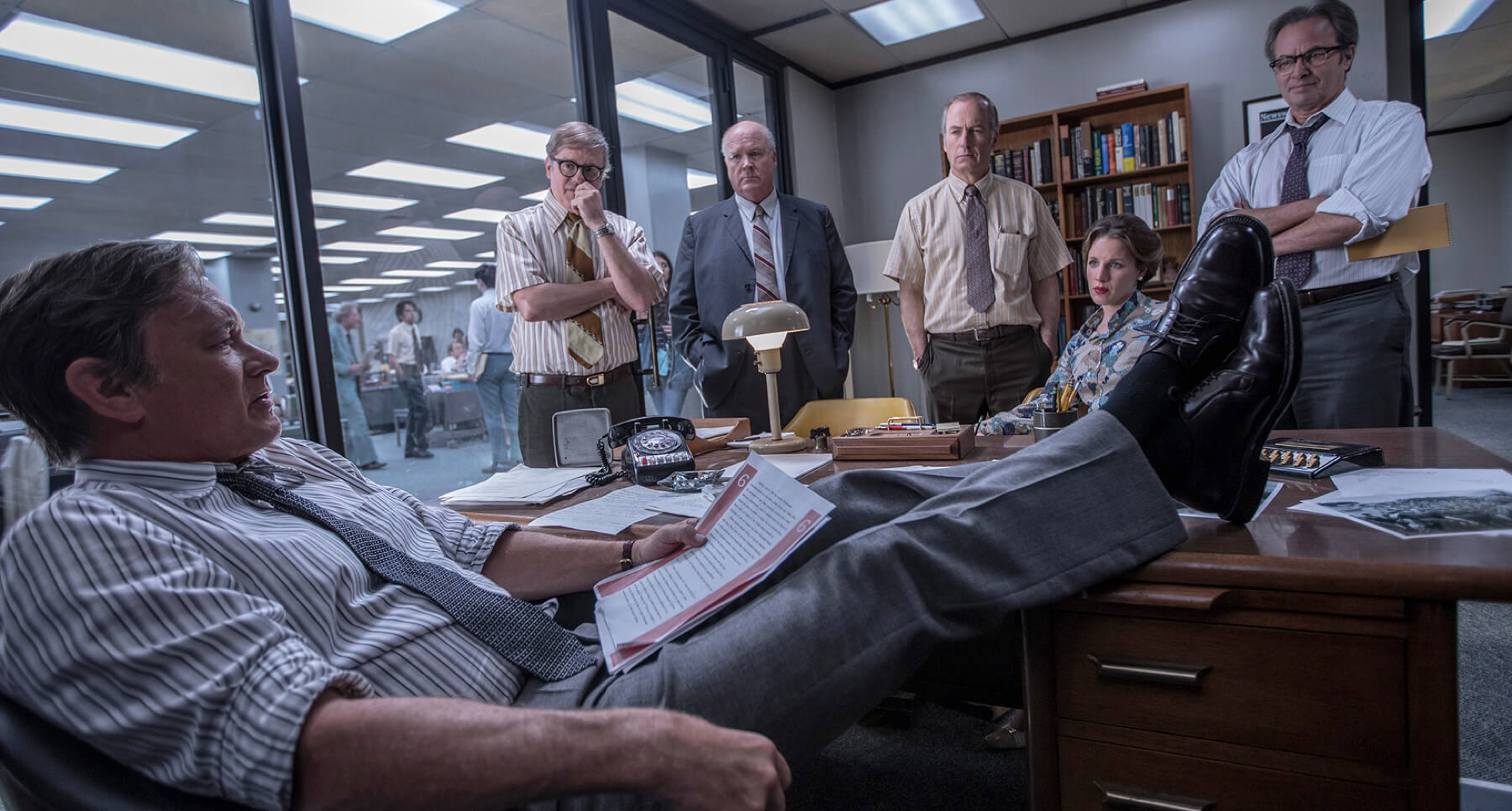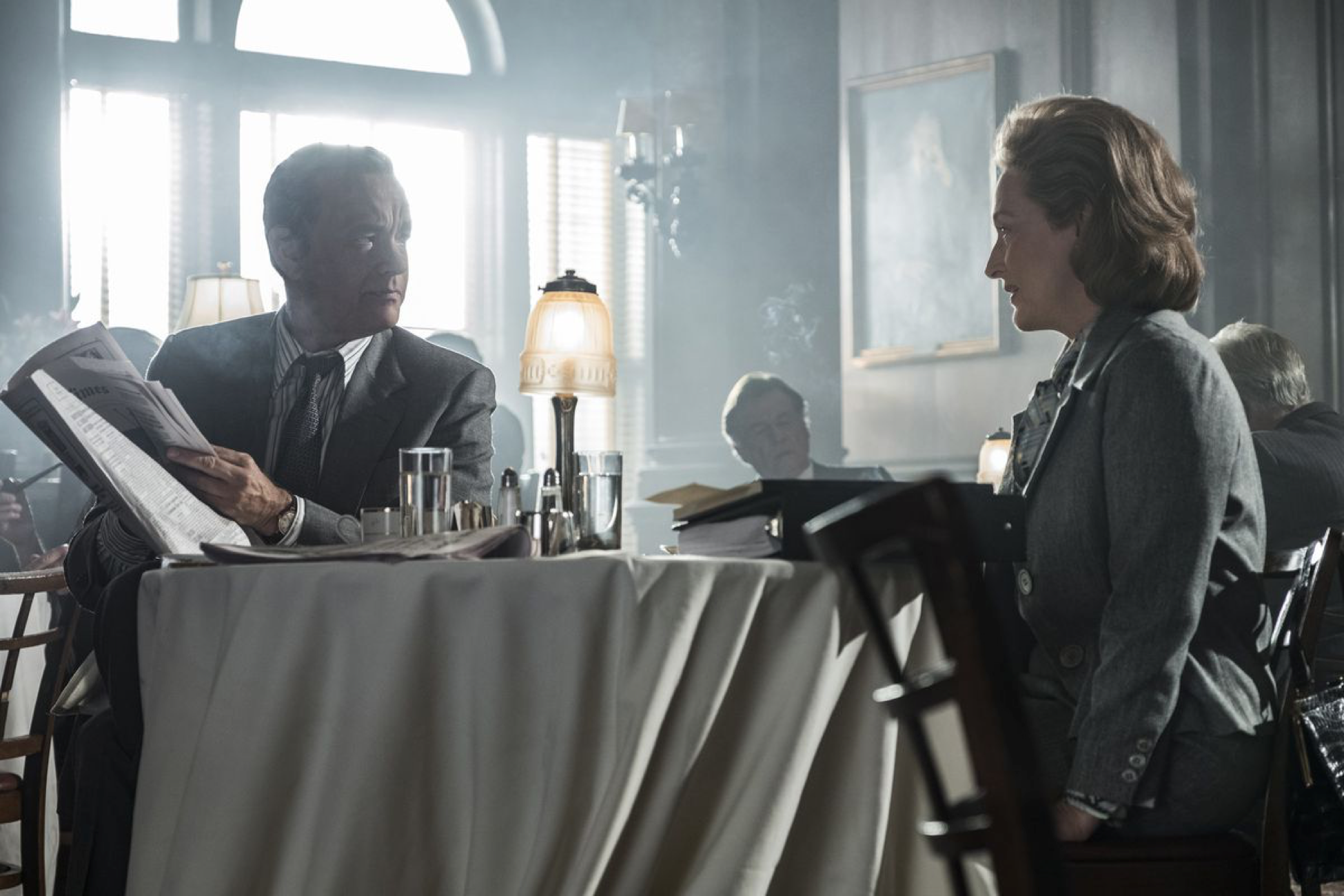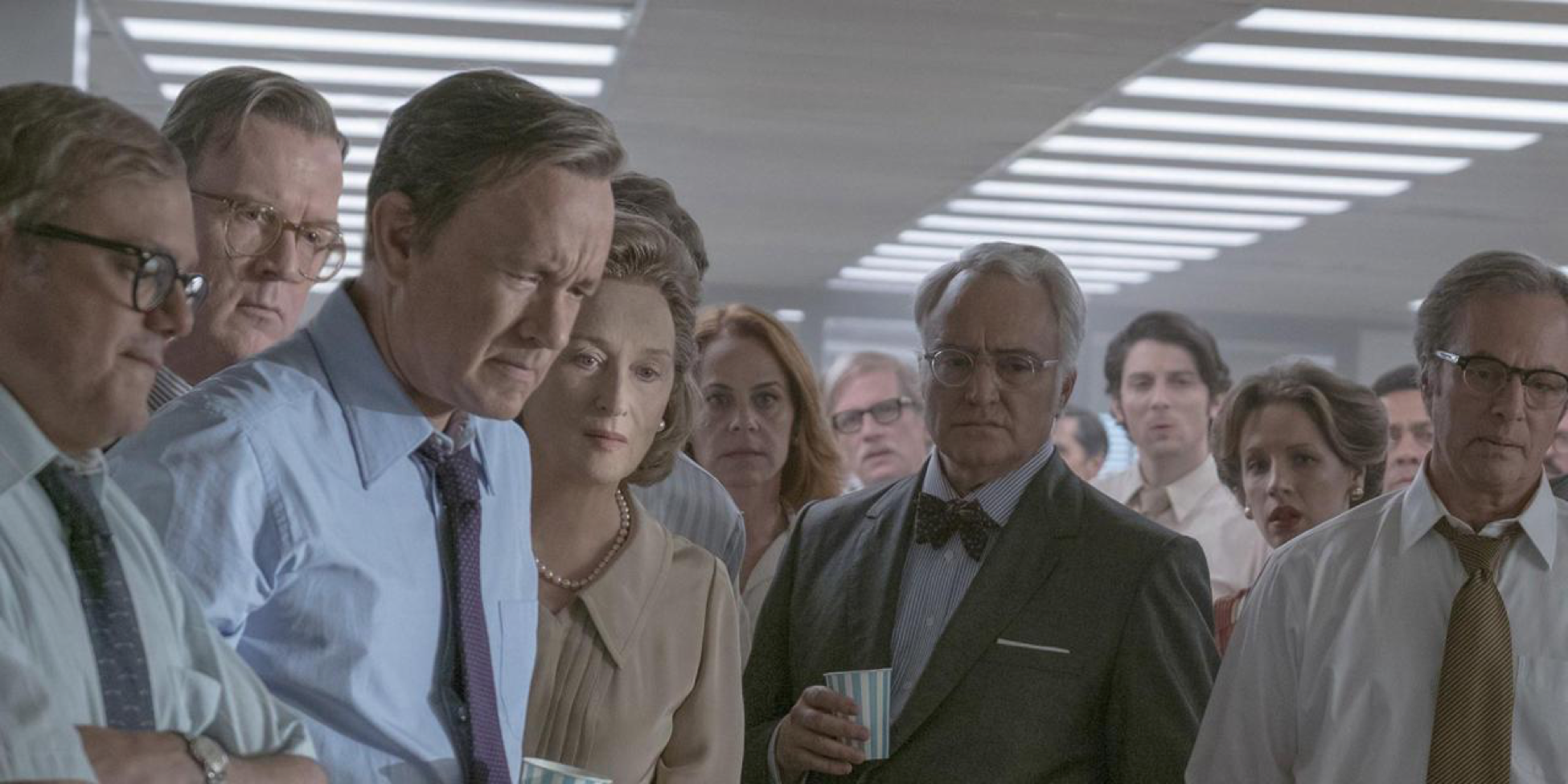This article previously appeared on Crossfader
Director: Steven Spielberg
Genre: Drama
Year: 2017
Who’d have thought that the director of Adam Sandler’s THE COBBLER would end up having made a better film on the free press than the director of SCHINDLER’S LIST? If there’s ever been a Spielberg apologist, it’s me. I don’t care how many times you yell out KINGDOM OF THE CRYSTAL SKULL, there are few filmmaking iconoclasts who so readily remain my idol. There are few things I loathe more than the excuse, “Well, if you hate this film so much, I’d like to see you try and make it,” but I’m willing to allow it with Spielberg films. No director in cinematic history has such a firm grip on sentimentality and visual language.
As much as we may dislike a Spielberg release, its mere existence ought to be celebrated as another inclusion into a highly influential oeuvre. When we say Hollywood, we mean Spielberg—that’s just the way it is. If this year’s HBO documentary on the director taught me anything, it’s that you can’t really hold anything against a man who, at age 71, still manages to release films that don’t suck. I don’t mean to be drawing comparisons, but it’s basically been a decade since Woody Allen has released anything of value. With that said, yes, THE POST kind of sucks, a desperate attempt to be topical and gripping without ever really being either.

Pictured: The Crossfader staff meets with Editor-In-Chief Thomas Seraydarian on whether or not to publish a negative review of THE POST
Depicting The Washington Post’s attempt to publish The Pentagon Papers, THE POST is a true story celebration of the free press, the first amendment, and America’s sordid history with egomaniacal presidents. It’s no secret that THE POST is prescient in today’s political climate, what with a similarly egomaniacal president trying to block freedom of speech by way of fake news smokescreens. But here’s the skinny: for starters, the stories that The Washington Post leaked are extremely interesting. But the actual story of The Washington Post leaking them is not. Outside of feeling timely, THE POST’s biggest hurdle is that it doesn’t really amount to much storytelling.
That is to say, THE POST squarely registers as a film made by a 71-year-old democrat. That’s not exactly a criticism, but it’s indicative of the film’s overall inadequacy. It naively uses a period setting as an allegory for what’s happening today, patriotically marching through its running time with a self-satisfied grin. “If the press survived Nixon, we can survive Trump” appears to be the slogan. And, I don’t know, maybe that’s not a good message? My greatest fear with THE POST is that it’s not exactly a conducive campaign of solidarity. In fact, it’s kind of complacent.

“These Crossfader hooligans have the gall to smear us on their two-bit publication”
The reason I say this is because so much of Spielberg’s film rests in one, simple conflict. Meryl Streep, who plays Washington Post owner Kay Graham, is sitting on a boatload of government secrets. Does she publish them and risk her friendships with countless Washington big shots, or does she cave to president Nixon’s demands and let the free press die? It’s not exactly a bad premise, but it suffers from the exact flaws that Joe Wright’s DARKEST HOUR did as well. Does Winston Churchill sign a peace treaty with Hitler or risk the lives of the British people instead? At the end of the day, both films amount to a two-hour barrage of “it’s the right thing to do” monologues, and as inspirational as this may sound, it’s not exactly cinematic.
Which is a strange thing to say for a Spielberg film. Contemporary cinema has arguably never seen a more outwardly visual director. The odd part is that relegating the likes of Tom Hanks and Meryl Streep to countless interior office chatter shouldn’t be boring. But Tom Hanks performs with the Americana bravado of BROKEBACK MOUNTAIN’s Heath Ledger, thin lip, squinty eyes, and gravelly voice included, and Meryl Streep doesn’t really get to act off of any character who is even half as conflicted as she is. The motley crew of familiar faces don’t help the film either, with the likes of David Spade just playing a budget version of SPOTLIGHT‘s Mark Ruffalo.

Pictured: The Crossfader staff discovers that they’re about to be sued by Spielberg for defamation
Which brings me to that polarizing 2016 Best Picture Winner. SPOTLIGHT, for better or worse, opted out of dense characterizations. It was a deeply pragmatic dissection of investigative journalism and used this cut-and-dry approach as a means to explore the endless red tape and moral queasiness of doing fieldwork. THE POST doesn’t have any investigative reporting—that is, unless you count Bob Odenkirk’s three phone calls. Once the Pentagon Papers are acquired—quite quickly, mind you—Spielberg’s film has no choice but to spend the rest of its running time on the conundrum of whether or not to publish them. And, as already mentioned, that never amounts to anything truly captivating.
None of this is to say that THE POST is completely worthless. No Spielberg film ever is. It carries on the filmmaker’s longstanding tradition of precise, effectively sentimental storytelling, from its luscious soundtrack to perfectionist photography. But once all the formal elements have been admired, it’s hard to deny that THE POST doesn’t feel like an old man’s view of our current state of affairs. From the shoehorned feminist messaging to the celebration of American liberty, it’s all a little naive—after all, not even The Washington Post is the upstanding news publication it once was. Perhaps there are wisdoms that older generations can in fact impart on us, but THE POST fails to be a radical film in a time that demands such. As much as I admire Spielberg for his intentions, our current sociopolitical climate seems to indicate that stories on the free press ought to be left in the hands of younger storytellers. But then again, if I don’t like this film, why don’t I try and make it? Touché.
Verdict: Do Not Recommend















Comments